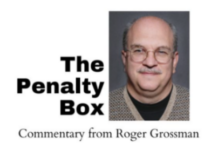News Release
WARSAW – With the increase in the cost of tobacco products that began on July 1, many may see this as an ideal opportunity to consider quitting tobacco.
The tax on packs of cigarettes rose by about $2 on July 1.
Whether motivated by health, financial goals, or the desire for a fresh start, Hoosiers across the state are being encouraged to take advantage of the many free and effective tools available to support their journey toward a tobacco-free life.
Support systems and evidence-based programs are in place to help make quitting more
attainable than ever. “We are dedicated to helping individuals who want to quit tobacco use by providing them with the necessary support and tools to succeed,” said Jessica Camarena, Vice President of Programs at Live Well Kosciusko.
In addition to helping adults quit, tobacco tax increases are one of the most effective tools to prevent youth tobacco use. As prices rise, fewer young people start using tobacco products.
Indiana’s new tax increase is expected to prevent more than 10,000 youth from becoming adults who smoke and reduce the number of young adults who smoke by more than 2,200.
The initiative provides clear pathways for Hoosiers seeking help to quit:
- Consulting their healthcare provider for medical advice on cessation
- Quit Now Indiana – Call 1-800-QUIT-NOW (784-8669), text READY to 34191, or visit
QuitNowIndiana.com to receive guidance from tobacco cessation coaches - Engaging with local tobacco prevention coalitions for additional resources
Programs like Quit Now Indiana are vital for providing essential cessation resources to
Hoosiers. In 2024, Quit Now Indiana served over 8,400 Hoosiers last year, which is a return on investment of nearly $12 million among those that successfully quit. For every $1 spent on Quit Now Indiana, the state saves nearly $10.
Indiana has made progress in reducing smoking rates over time, but tobacco use still places a
heavy burden on public and economic health. Healthcare costs in Indiana directly caused by
smoking are estimated at $3.4 billion annually.
With strong statewide efforts and continued focus on prevention and cessation, health officials
remain optimistic that more Hoosiers will take this critical step toward a tobacco-free life.





